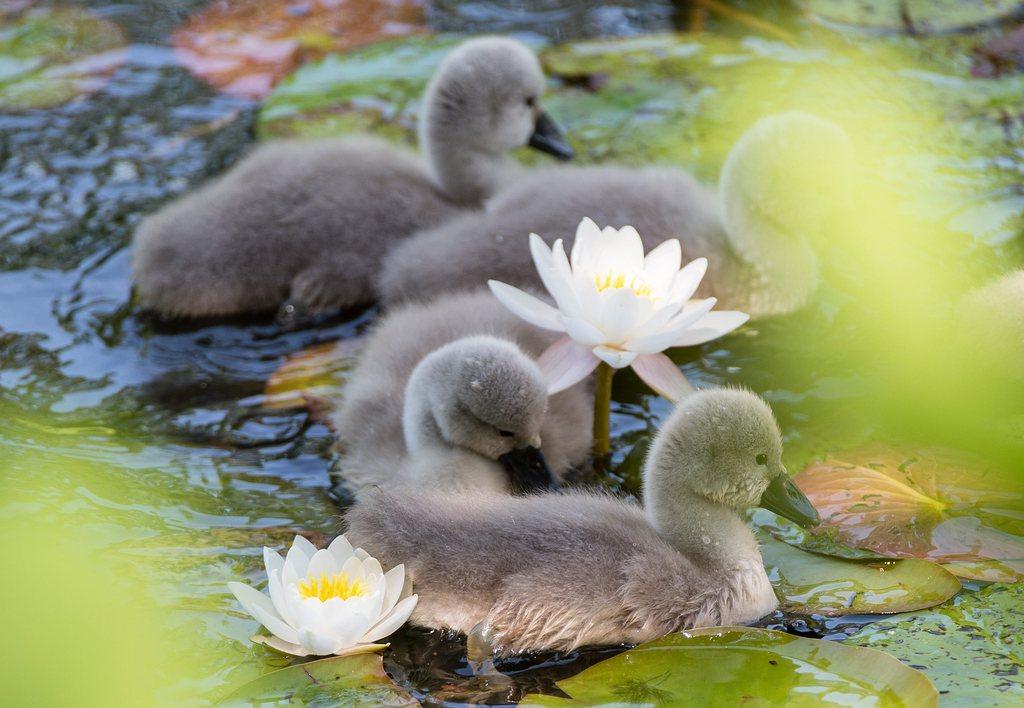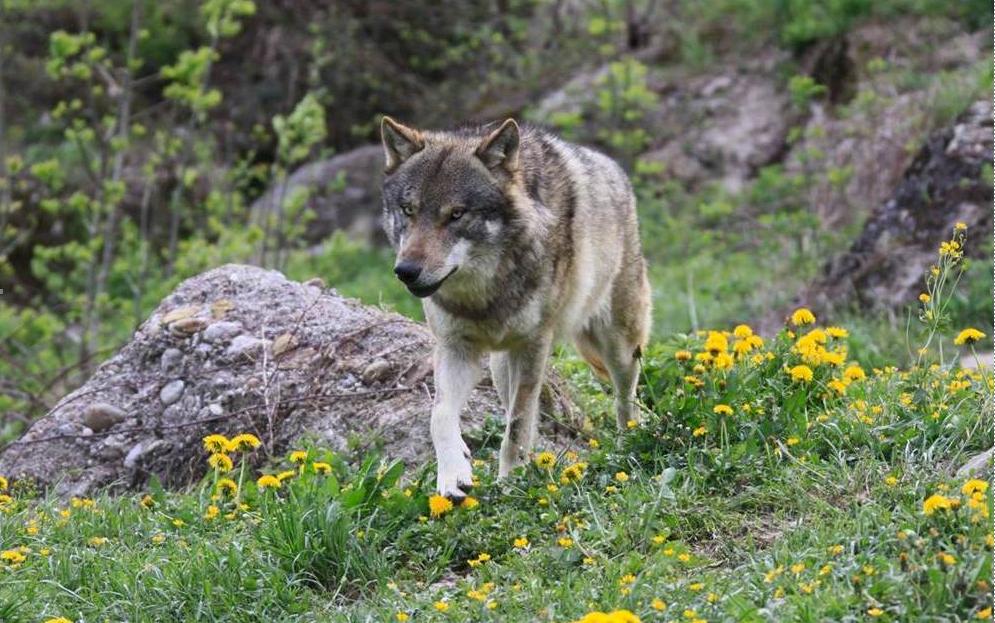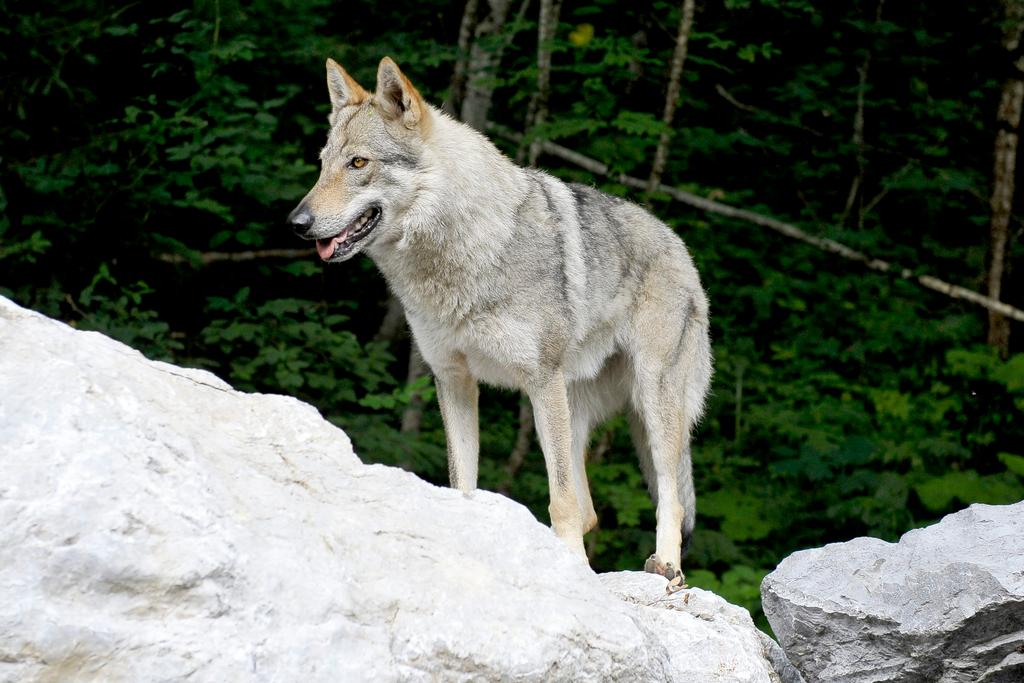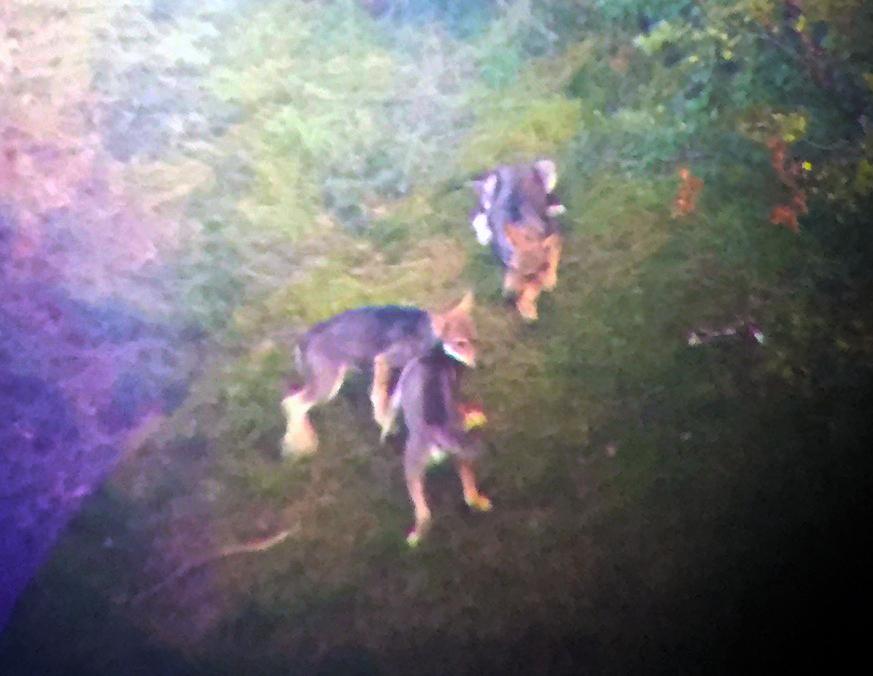Swiss wolves and swans could face decimation

The Swiss cabinet wants to relax hunting laws concerning wolves, swans and other protected animals, suggesting animal populations should be decimated if they cause serious damage or threaten humans or other species.
The cabinet announced on Wednesday its proposed reforms to the hunting law. These will now be discussed by various groups and both chambers of parliament.
Problems have arisen in Switzerland since large carnivores started regaining territory. In particular, livestock owners in mountain areas have had a strained relationship with wolves, which attack and kill sheep and goats.
Farmers near lakes also complain that their fields are polluted by swan excrement.
At present, the Federal Office for the EnvironmentExternal link is in charge of granting hunting permits; in future, according to the cabinet’s draft bill, the cabinet would list those species whose population may be regulated – although the final decision of whether protected animals may be shot would be left with the cantons.

More
Love or hate the wolf? Depends where you live
The cantons would be able to permit the shooting at any time of individual animals that cause serious damage or endanger people.
In addition to culling, the cabinet also suggests other means of regulation such as relocating animals or preventing reproduction.
Other species that could feature on a government list include the mute swan, lynx, beaver and black-headed gull. Rooks would also lose their status as a protected species.
Open and closed season
There are 30-40 wolves in Switzerland, according to government estimates. These are thought to kill around 160 livestock a year.
At present, authorisation within a specific canton to shoot wolves is given only if 25 sheep are killed by the animal within a month. Sixty days is given for the animal to be killed. If the wolf has not been tracked down during this period, the authorisation expires.
A motion to make it permanent open season on wolves without the need of permission was rejected by the Senate in March.
The government bill would also change the regulations regarding closed seasons, when animals may not be shot. All indigenous species would be granted a closed season, but “non-resident” species such as the fallow deer, the sika (similar to the fallow deer) and the mouflon (a type of wild sheep) may be shot all year round.
There would also be no closed season for murders of crows near agricultural crops or young wild boars outside forests. The closed season would be shortened for wild boars and cormorants.
There would be good news, however, for partridges and the great crested grebe, which would be added to the protected category.

In compliance with the JTI standards
More: SWI swissinfo.ch certified by the Journalism Trust Initiative











You can find an overview of ongoing debates with our journalists here . Please join us!
If you want to start a conversation about a topic raised in this article or want to report factual errors, email us at english@swissinfo.ch.